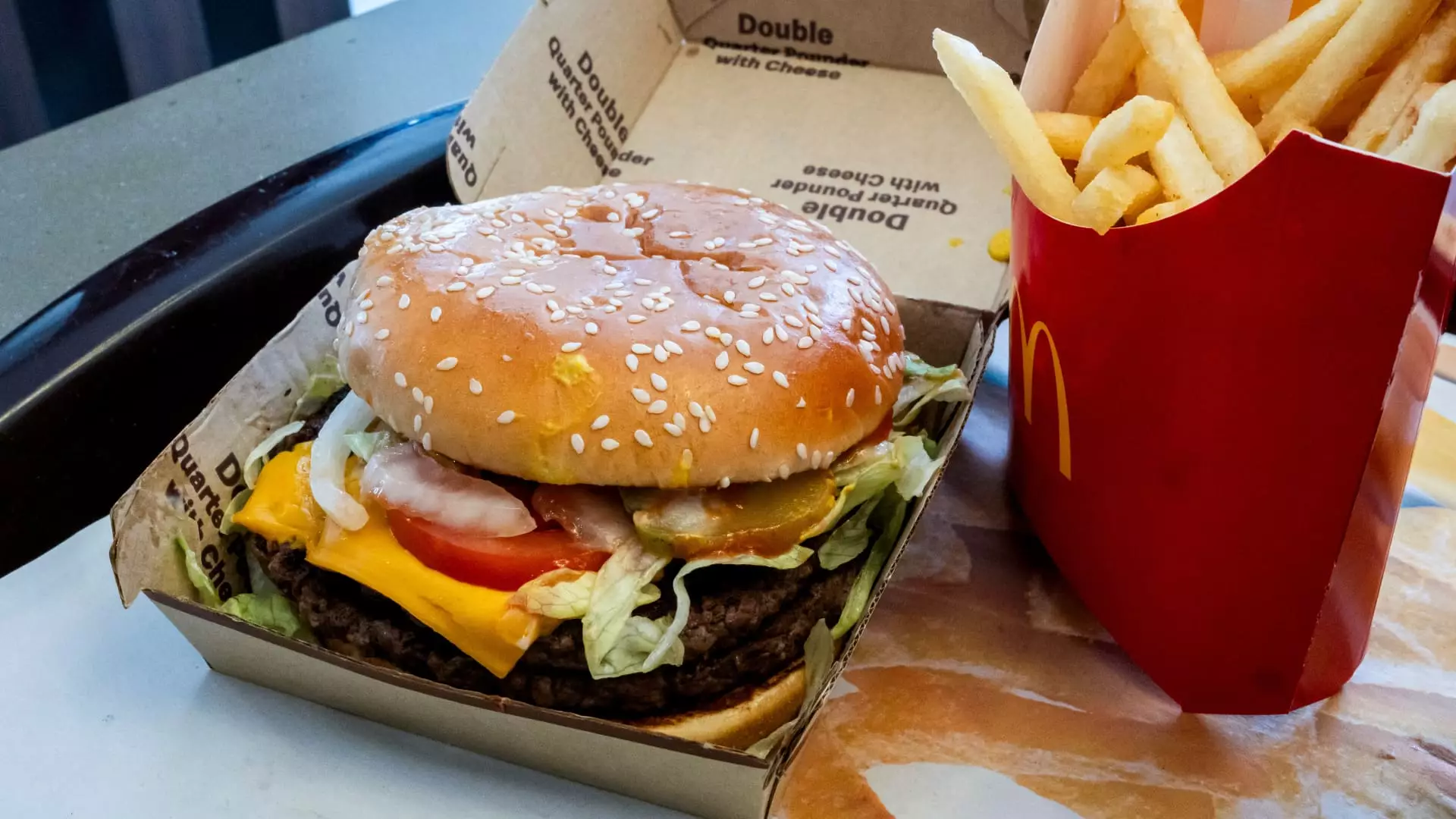After a challenging episode involving an E. coli outbreak, McDonald’s is taking cautious steps to reintroduce its beloved Quarter Pounder burger to nearly 900 of its restaurants. This decision comes amid scrutiny and health investigations that led to the temporary withdrawal of this menu item linked to food safety concerns. As the fast-food giant grapples with the fallout from the outbreak, which has affected approximately 20% of its U.S. locations, it aims to restore public confidence while ensuring customer safety.
The comeback of the Quarter Pounder is notable considering the intricacies involved in food supply chains and consumer safety. The reintroduction of this specific burger will notably exclude slivered onions, a key ingredient that health authorities believe to be the source of the outbreak. Although McDonald’s is optimistic that the issue is contained, the company’s decision to exclude slivered onions reflects a precautionary approach to halting any further health risks.
The investigation led by the Centers for Disease Control and Prevention (CDC) has identified 75 cases of E. coli across 13 states, primarily concentrated in regions served by the affected restaurants. Among those infected, 22 individuals have experienced hospitalization due to severe symptoms, and there are reports of a fatality in Colorado. These alarming statistics emphasize the crucial role of swift action and transparency in the fast-food industry, particularly when public health is at stake.
McDonald’s has taken decisive steps by severing ties with Taylor Farms, the supplier of the slivered onions under scrutiny. This decision underscores the importance of accountability within the food supply chain and showcases McDonald’s commitment to ensuring quality and safety for its customers. The company is not only looking at immediate changes but is also seeking fresh beef patties from its suppliers, indicating a systemic effort to enhance food safety practices.
In light of the outbreak, McDonald’s leadership has been vocal about the situation, with Joe Erlinger, the President of McDonald’s USA, expressing heartfelt apologies to customers affected by the health scare. His online statement aims to resonate with customers who may feel anxious or compromised by the recent developments. Effective communication is crucial in restoring consumer trust, particularly after incidents of foodborne illnesses that threaten the credibility of food establishments.
McDonald’s proactive media outreach serves two purposes: it addresses customer concerns directly and transparently, and it highlights the company’s commitment to rectifying the situation. However, while public relations efforts are essential, they must be backed by substantial changes to ensure that such outbreaks do not recur. The fast-food chain’s future practices will likely be under closer scrutiny as they attempt to reassure diners that their health and well-being are top priorities.
As McDonald’s prepares to report its third-quarter earnings, the financial ramifications of this E. coli crisis cannot be overlooked. With stock values plummeting by 7% since the outbreak was linked to the chain, investors are undoubtedly wary of the long-term impact on the brand’s reputation and financial health. The decision to phase back the Quarter Pounder on a rolling basis suggests that McDonald’s is implementing a careful strategy to manage both operational logistics and customer perceptions.
The company’s ability to bounce back from this crisis will largely depend on the effectiveness of its response strategies and the strength of its supply chain management. While the brand remains iconic and has a broad customer base, maintaining consumer loyalty in light of food safety concerns will require diligent efforts and perhaps a re-evaluation of food sourcing methods.
As McDonald’s navigates the complexities of reinstating the Quarter Pounder, the incident sheds light on the intricacies of food safety, supply chain integrity, and the delicate balance brands must maintain with consumer trust. The company’s strategic removal of slivered onions demonstrates an understanding of its responsibilities to customers and the urgent need for enhanced safety practices.
Moving forward, maintaining open communication and making substantial improvements will be crucial for McDonald’s as it seeks to mend its relationship with the public and ensure that its food offerings remain synonymous with quality and safety. Only through such efforts can the fast-food giant hope to emerge stronger from this setback, reaffirming its commitment to both customer satisfaction and health standards.


Leave a Reply